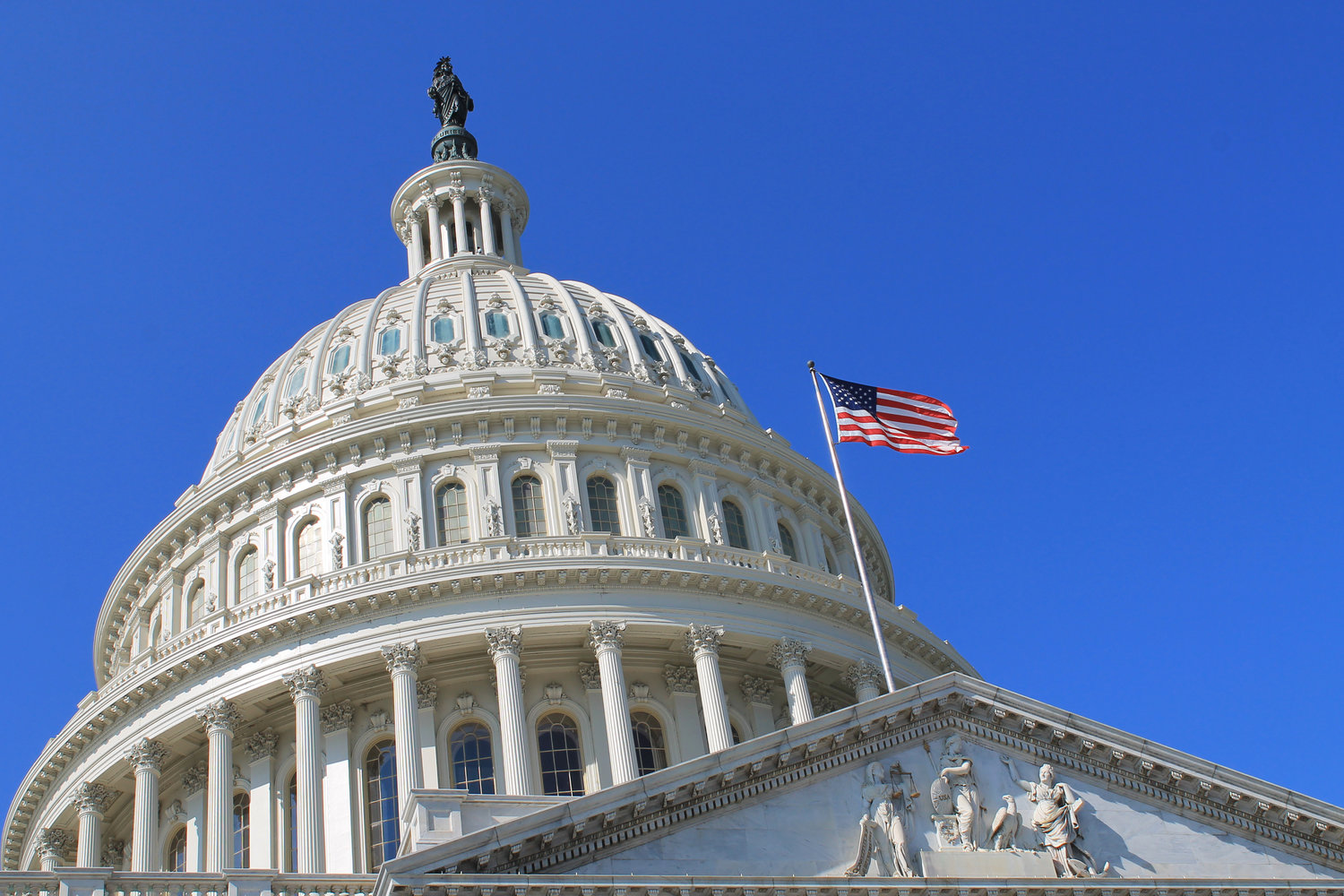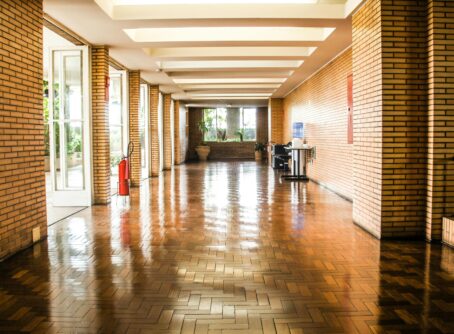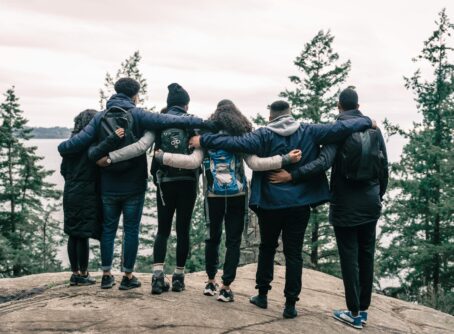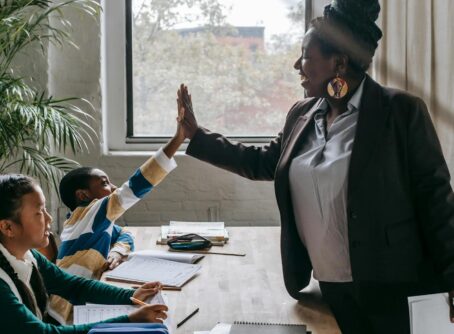
This article is part of Shared Justice’s Second Chance Month series running throughout April and May. This series will explore barriers that returning citizens face upon release from prison, highlight the ways in which government and civil society institutions can respond, and invite our readers to participate in efforts to ensure that returning citizens have the ability to flourish upon reentering society.
The American criminal justice system has often failed to treat prisoners and returning citizens as men and women with inherent human dignity. As a Christian who wishes to see all human beings treated as God’s image-bearers, I believe there is an urgent need for healing in this area. The recent First Step Act has been acclaimed as a great achievement in criminal justice reform and one of the most successful bipartisan initiatives in years. What are the implications of this law for protecting the humanity of the incarcerated, and what still needs to be done?
Earlier this year, I attended a symposium on the Act organized by The Hill that brought together legislators and subject matter experts to discuss the present state and future of criminal justice reform in the U.S. The speakers’ insights highlighted the unique role that government can play in preventing recidivism and addressing the problem of mass incarceration. They also emphasized the necessity of community action and support from the institutions of civil society. On the whole, their sentiments were closely aligned with a public justice framework, in which determining the right roles and responsibilities of different institutions is paramount.
THE HISTORICAL AND POLITICAL CONTEXT OF REFORM
America’s criminal justice system has been beset by systemic problems for quite some time. Though the U.S. contains less than 5 percent of the world’s population, it contains close to 22 percent of the global incarcerated population. Moreover, many individuals, once released, tragically end up returning to prison. This combination of high incarceration and recidivism places great strain on the federal budget. More importantly, it has caused great harm to individuals, families and communities, especially within minority populations that are disproportionately represented in the criminal justice system.
The current political climate is highly polarized. Creating a bipartisan bill to address criminal justice that the president would approve in such an atmosphere would seem an unlikely feat. Nevertheless, that is exactly what legislators like James Clyburn (D-SC) and Doug Collins (R-GA) set out to do—and accomplished successfully. According to both representatives, it was not easy, but interpersonal relationships and connections made bipartisanship possible. Moreover, Democrats and Republicans could find common ground because the criminal justice crisis, in Collins’ words, is a matter of both “money and morals.”
Yet despite this progress, there remain serious problems in our criminal justice system. The lack of protection for the mentally ill, the statutory ratio for crack cocaine possession and the disenfranchisement of individuals with felony records are just a few areas that were mentioned by the speakers as needing further reform. The First Step Act is rightly being celebrated as a great success, if a limited one. Clyburn urged patience, pointing out that the Civil Rights Act, as we know it, took eight years to be put into law. “Please, let’s not refuse to take the first step,” he implored. “We ought not sacrifice good on the altar of perfect.”
THE UNIQUE ROLE OF GOVERNMENT
In a public justice framework, determining the right roles and responsibilities of the different spheres of society is imperative. Not everything lies within the government’s jurisdiction, and in many cases justice demands that the state create space for other spheres, leaving matters in the hands of private institutions, families or the individual.
In other circumstances, however, government is essential. In fact, only the government can legitimately administer retributive justice. According to the Center for Public Justice’s Guidelines on Security and Defense, “Government alone has the right to monopolize control of force for the purpose of upholding and enforcing the law.” Because the government is the only entity that can claim control over the criminal justice system, it holds the responsibility of ensuring that those who violate the law are treated fairly and not prescribed undue punishment.
The Hill’s speakers recognized this. Rep. Stacey Plaskett (D-USVI) described the grave injustices she witnessed as a New York prosecutor at the hands of the law. Prisoners at Riker’s Island were detained indefinitely, and as an African American, she said that she too often saw people who looked like herself or her children in the defendant’s seat. Plaskett said that she left her position because she didn’t feel like she was actually protecting the innocent, and now she fights for reform from within Congress.
“Government and civil society have essential and complementary duties to ensure that the law treats all citizens as it should.
According to Plaskett, prison environments need to be changed, not just on paper but in practice. Even with the First Step Act’s new requirement that prisoners be held in facilities near their homes, she said her Virgin Islander constituents are sent to an overpopulated, unsafe prison in Puerto Rico, over 100 miles away. And Plaskett stated that the private sector is still incentivized by economic policies to keep prison populations high. Only the government can address these problems.
Furthermore, rehabilitative and restorative programs are lacking much-needed government support. Plaskett pointed out that many returning citizens, for example, are denied access to Supplemental Nutrition Assistance Program (SNAP) benefits. Barriers to reentry like this are common and make it difficult for returning citizens to successfully reintegrate into their communities.
THE CONTRIBUTIONS OF CIVIL SOCIETY
In a public justice framework, civil society—composed of mediating institutions like businesses, nonprofits and the family—also has a powerful role to play in upholding the common good. Though government has primary responsibility for criminal justice reform, civil society is uniquely equipped to meet the distinct and personalized needs of returning citizens.
Nicole D. Porter, the Director of Advocacy for The Sentencing Project, and Topeka Sam, founder of The Ladies of Hope Ministries, both emphasized the necessity of community support in restorative justice work. Porter asserted that we need to seriously reconsider alternatives to incarceration in order to reverse the “prison culture” that has arisen in minority communities, in which so many people spend time in prison that incarceration often becomes normalized and even expected. Sam shared this sentiment, arguing for the removal of blanket sentencing because there is no easy way to categorize the gravity of crimes. Women’s offenses, for example, need to be understood in the context of the domestic abuse and emotional trauma that often accompany them. Sam believes they need to be evaluated on a case-by-case basis.
According to Porter, advocacy for change in this area will be most successful at the local level, where situational knowledge is more complete and interpersonal relationships carry more weight. Citizens “cannot underestimate how much social capital they have with their direct representative,” she stated. Sam commented, “We [the people] are the voice, and we make the change, because we know what we need for our communities.”
In all these areas, faith-based organizations (FBOs) can be a great source of community support and action. Harvard research shows that FBOs depend less on government funds than their secular counterparts, are better able to acquire and retain volunteers, are committed to their cause on a spiritual level and are more trusted by the communities they serve. According to the research, it is even possible that they are more effective as a general rule. This is especially true of African American churches, which Ram Cnaan’s findings show tend to be more civically engaged, more likely to work with other organizations and provide services worth millions of dollars for a fraction of the price. Returning citizens face immense challenges, and the diverse and personalized support offered by FBOs and the black church in particular is often critical to their reentry journey.
THE NEXT STEP
It is a great tragedy that our country has failed to treat so many of its citizens with the dignity that, as human beings created in the image of God, deserve. Nevertheless, the First Step Act represents a major watershed moment. Through the bipartisan efforts of Congress, the government is beginning to live into its unique role in addressing mass incarceration and recidivism. It is doubtful that this would have been possible without the myriad contributions of individuals, nonprofits and other institutions that communicated the situation on the ground to their elected representatives.
As the speakers at The Hill’s symposium made clear, government and civil society have essential and complementary duties to ensure that the law treats all citizens as it should. Going forward, collaboration between the two will be crucial. Only when we respect the right roles and responsibilities of our society’s component elements can we make public justice a reality and honor formerly incarcerated individuals’ inherent, God-given dignity.
Collin Slowey is an intern with the Center for Public Justice and a political science student at Baylor University.






